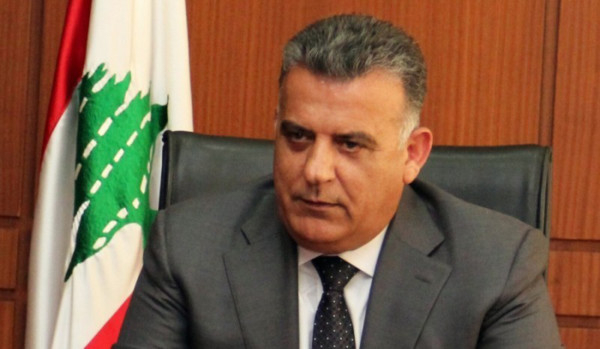
Beirut: Lebanon General Security chief Major-General Abbas Ebrahim has warned that war was ‘just a matter of time’ in the absence of inclusion and understanding in the country.
Ebrahim, a Shiite officer with close ties to Hezbollah, called for increased cohesion among all political forces in the country and blasted elites for what he called “irresponsible rhetoric”.
He challenged politicians to put the nation first and to uphold the inclusion of Lebanon’s numerous sects.
Although he didn’t mention any politician by name, it was widely believed he was addressing Lebanese Foreign Minister Jibran Bassil.
Bassil heads the pro-Syrian Free Patriotic Movement and is son-in-law of Lebanese president Michel Aoun.
His bold stances in the past have landed him in hot water — particular his refusal to condemn the ransacking of Saudi missions in Iran last year which triggered a diplomatic crisis between Lebanon and Saudi Arabia.
Currently, Bassil has positioned himself as the champion of Christian rights in the country as a new electoral law is being debated in parliament — which should be agreed on and passed before the next session in two weeks.
Lebanon’s inability to agree on a new law has prevented it from holding parliamentary elections for years and its term has been extended twice.
The last time Lebanese voted was in 2009.
Powerful Shiite groups like the Iran-backed Hezbollah and Amal want proportional representation or the winner-takes-all system since that would give it potential control of parliament due to its large numbers
According to the 1960 voting law, parliament seats are allocated by religious sects which Lebanon’s most prominent Christian parties want to amend.
They say the law marginalises Christian voters, because, in the winner-take-all model Muslim voters in predominantly Christian districts cast their ballots to candidates backed by lists dominated by non-Christian parties.
Bassil has championed a sectarian-based two-stage “qualification vote” which he believed would “restore Christian’s rights” that were undermined by the Taif Accords.
Bassil does not want Muslims to vote for Christian deputies — although he never explicitly said such a thing.
The constitution has always allowed citizens to vote based on political affiliations and not based on their religion.
Lebanese political parties and militias fought each other long before the 1975-1990 Civil War which ended with the 1989 Taif Accords.
What followed was three decades of Syrian domination that ended with the 2005 Cedar Revolution when Damascus withdrew nearly 40,000 soldiers from Lebanon.
Ebrahim pointed out Lebanon’s current fragile peace was under threat if its citizens did not put the nation first.
After the Taif accords, all militias surrendered their weapons and turned to political engagement — with the exception of Hezbollah.












